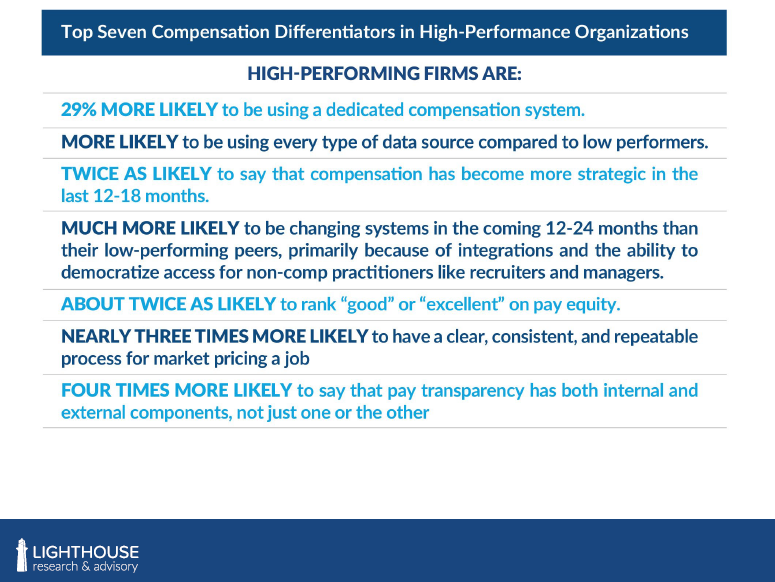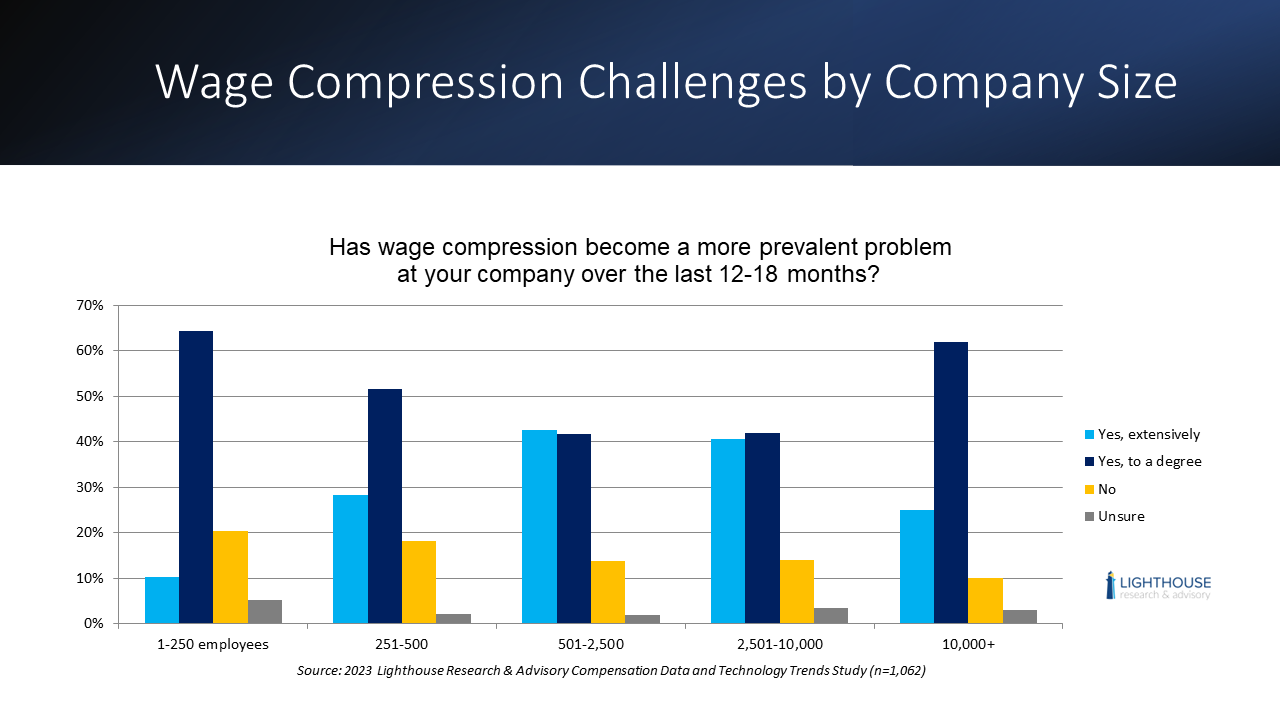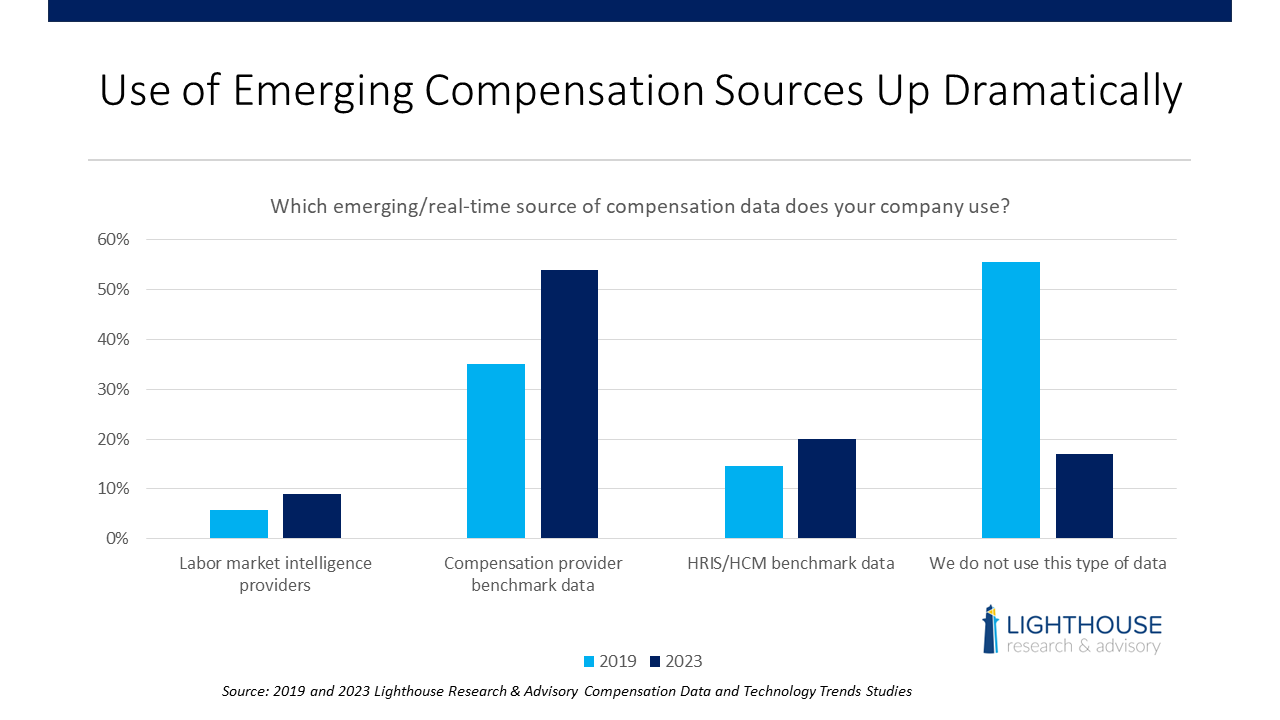Over the last few months we’ve been working on our 2023 Compensation Data and Technology Trends research that we update every two years. In this year’s findings, we uncovered some new areas of interest, from how and why companies adopt these technologies to how they are changing their use of data to support comp practices. [Update: get the new report here.]
In the graphic below snipped from the final report that will be published soon, we outline seven of the differentiators between high-performing firms (those with better revenue, retention, and engagement measures relative to their peers) and the rest. The points cover critical areas like:
- Adoption of technology to support compensation strategy and decisions
- Use of data across a wide variety of types and applications
- Focus on pay equity as a business practice, not just a separate program
- And more
This is based on research of over 1,000 employers across virtually every industry and organizational size by headcount.

We saw very strong links in the research that indicate employers who are prioritizing pay transparency and pay equity are more likely to be high-performing overall.
These practices ultimately offer a helpful set of guidelines for organizations looking to establish themselves as high performers, especially when it comes to talent management practices.
Key Takeaways from Our Analysis
Employers that want to level up their compensation practices have to do so as part of a holistic strategy. This can’t be a half baked approach that just involves maxing out wages at what the market allows. Even mature, well-organized compensation teams across all company sizes say that they have faced struggles in the last few years due to wage compression, changing demands for pay transparency, and other priorities.

Beyond that, we’re seeing a very intriguing rise of companies using additional traditional (salary surveys) and nontraditional (job posting data, HRIS-driven comp data) sources of information for compensation decisions. Just like AI has created a sort of arms race for data to train algorithms, compensation practices in the last few years have required employers to take that same approach to comp data, gathering as many sources as possible to make accurate, timely decisions about pay.

Stay tuned for the final report coming soon with more than 100 pages of research, analysis, landscape profiles of comp providers, and more. If you have questions about the research or want to know more about how it applies to your organization, don’t hesitate to reach out.

Ben Eubanks is the Chief Research Officer at Lighthouse Research & Advisory. He is an author, speaker, and researcher with a passion for telling stories and making complex topics easy to understand.
His latest book Talent Scarcity answers the question every business leader has asked in recent years: “Where are all the people, and how do we get them back to work?” It shares practical and strategic recruiting and retention ideas and case studies for every employer.
His first book, Artificial Intelligence for HR, is the world’s most-cited resource on AI applications for hiring, development, and employee experience.
Ben has more than 10 years of experience both as an HR/recruiting executive as well as a researcher on workplace topics. His work is practical, relevant, and valued by practitioners from F100 firms to SMB organizations across the globe.
He has spoken to tens of thousands of HR professionals across the globe and enjoys sharing about technology, talent practices, and more. His speaking credits include the SHRM Annual Conference, Seminarium International, PeopleMatters Dubai and India, and over 100 other notable events.
